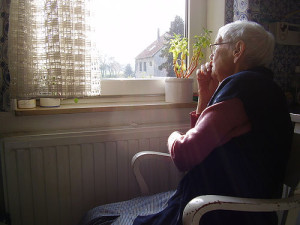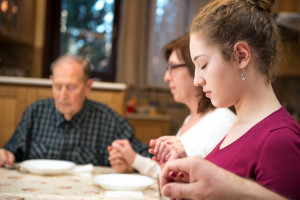Depression at the Holidays
Although the holidays can bring much joy and cheer, for some older adults holiday time means depression. In the elderly, often it is not the holiday itself that causes sadness but the memories of earlier, perhaps happier, times.
Depression can be caused by a minor or serious medical problem; chronic pain or complications of an illness; memory loss; poor diet; loss of a spouse, close friend or companion; a move to a care facility; lack of exercise; change in routine; and/or general frustrations with aging. Symptoms to look for include:
- Feelings of worthlessness or sadness
- Expressions of helplessness or fatigue
- Anxiety or difficulty concentrating
- Loss of interest in daily activities, personal care and hygiene
- Loss of appetite or weight loss
- Obsessive thoughts about death and suicide
Seasonal Affective Disorder (SAD)
Some people who experience depression at the holidays may be suffering from Seasonal Affective Disorder. According to the Diagnostic and Statistical Manual of Mental Disorders, (see https://en.wikipedia.org/wiki/Diagnostic_and_Statistical_Manual_of_Mental_Disorders ), SAD is no longer classified as a unique mood disorder, which occurs during particular seasons. But rather is a recurrent major depressive disorder “with seasonal pattern” that occurs only during specific times of year and then disappears till next year. SAD is prevalent and is found in up to 9.7 % of the population.
Is It Depression or Dementia?
Depression and dementia share similar symptoms. In depression there is a rapid mental decline, but memory of time, date and awareness of the environment remains. Motor skills are slow, but normal in depression. Concern with concentrating and worry about impaired memory may occur.
On the other hand, dementia symptoms reveal a slow mental decline with confusion and loss of recognizing familiar locations. Writing, speaking and motor skills are impaired and memory loss is not acknowledged as a being problem by the person suffering dementia. Whether it is depression or dementia, prompt treatment by your doctor is recommended.
How Can You Help An Elderly Loved One During The Holidays?
If you are a caregiver or family member of a depressed older person, get involved. People who are depressed generally deny problems or may fear mental illness. You can help your loved one feel the magic of the season and feel loved by including them in general activities such as:
Shopping, decorating, baking, gift-making, gift-wrapping AW Health Care can send a caregiver to help you shop and wrap gifts. It’s worth it. Ask us! MO (314 726-5600 IL (618) 344-8800.
- Visit family and friends in town, or visit local sites you’ve never seen.
- Decorate with holiday lighting – Adding indoor lights can help get everyone in the season and aid in relief of Seasonal Affective Disorder.
- Eat healthy, try simple exercises and get a great haircut, shave, pedicure or leg massage. AW Health Care can send a caregiver to help with meals and personal care. Ask us! MO (314 726-5600 IL (618) 344-8800.
- If your loved one’s depression is linked to a passed loved one, the holidays can be particularly painful. Discussing and reminiscing about the departed may result in sharing mutual feelings that need to be let out.
November is a time to give thanks!








Comments are closed.